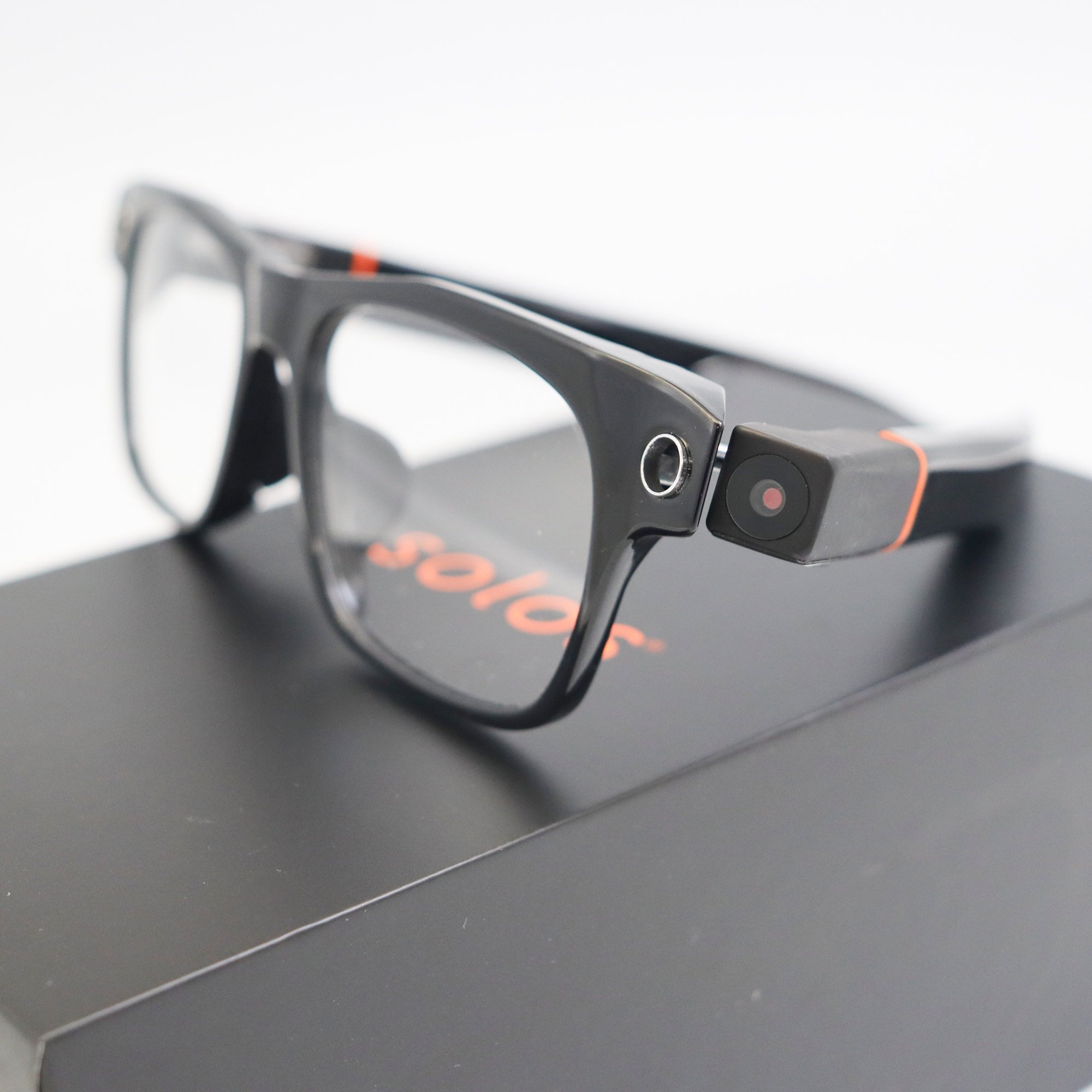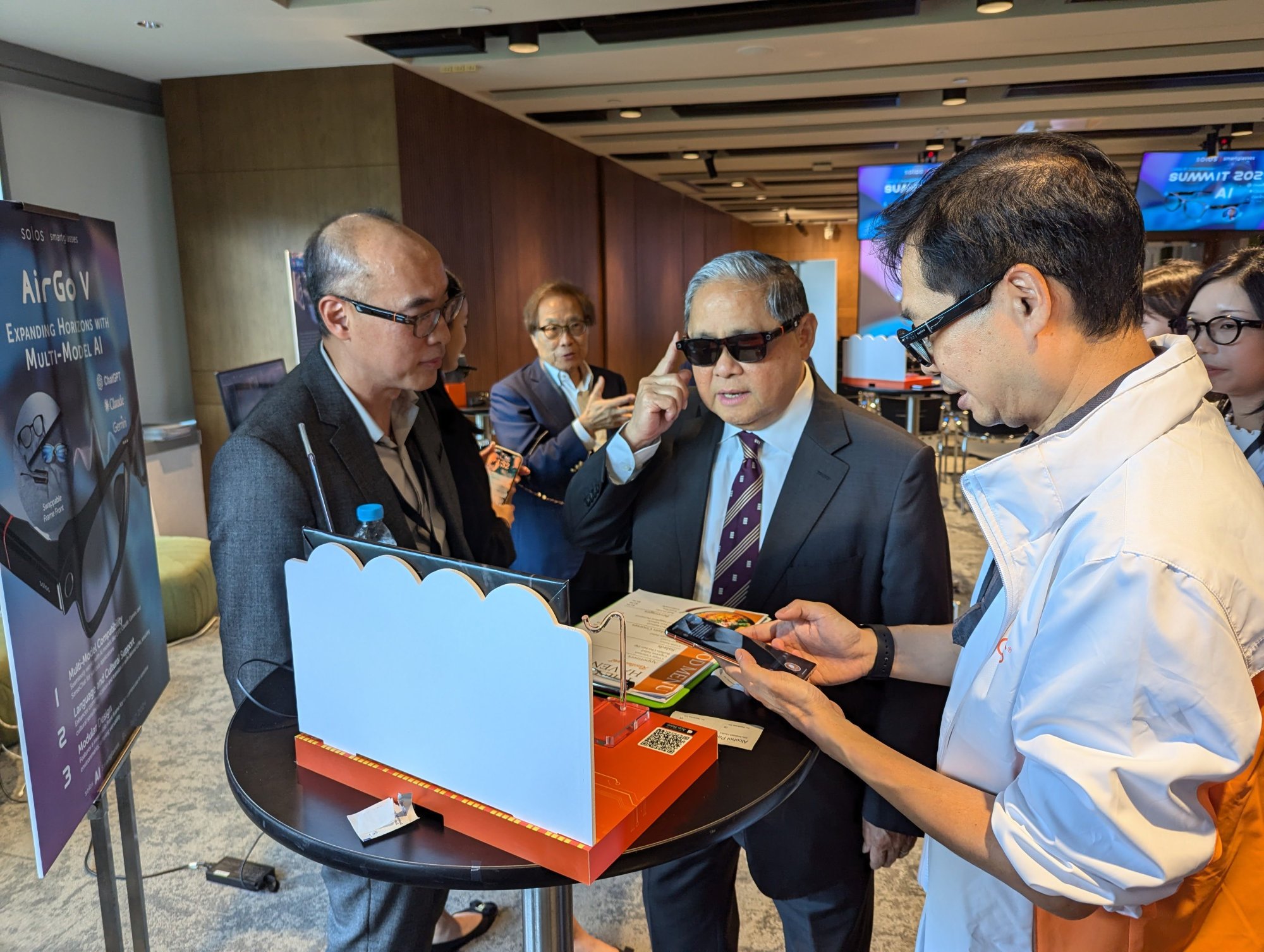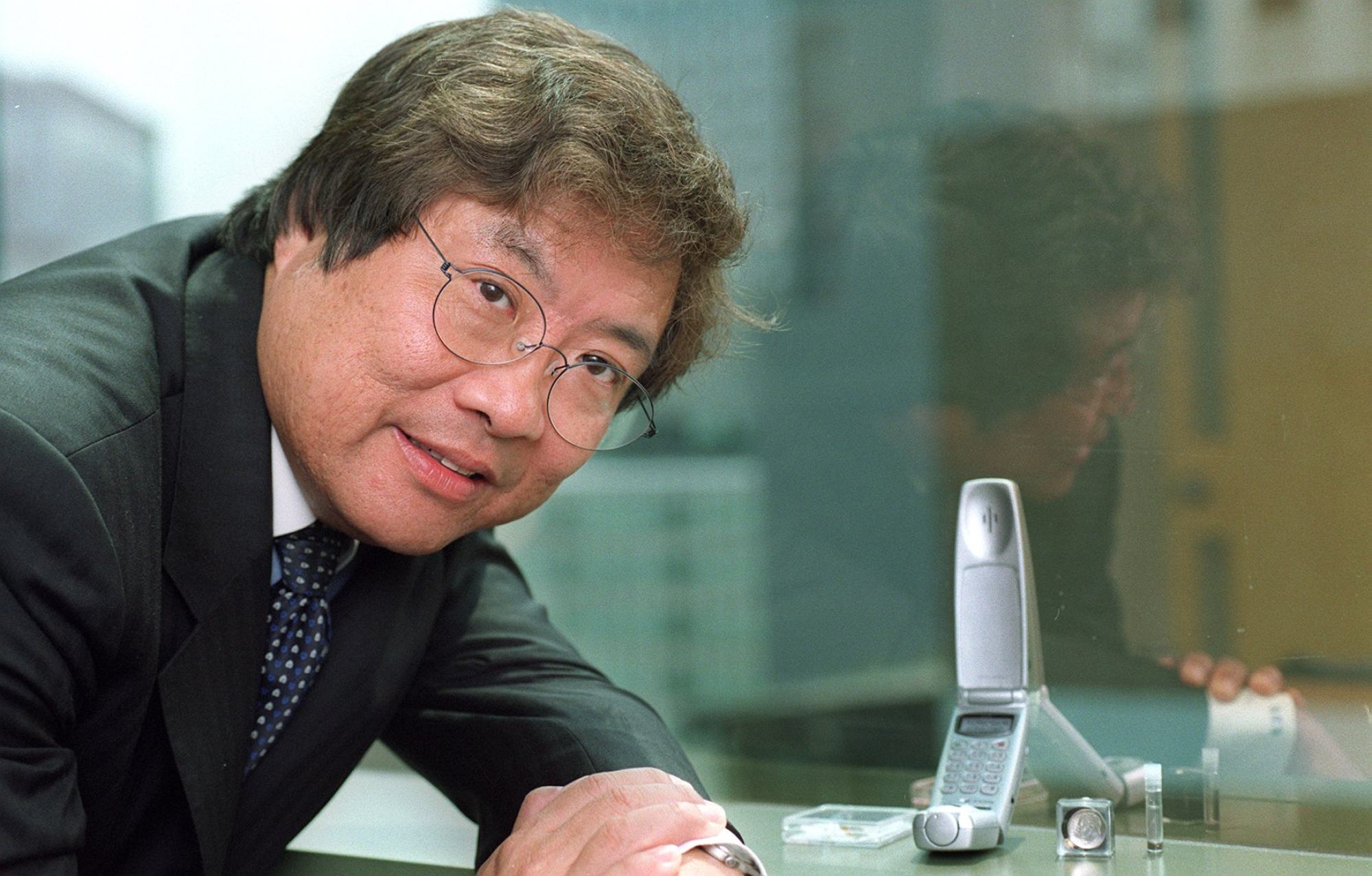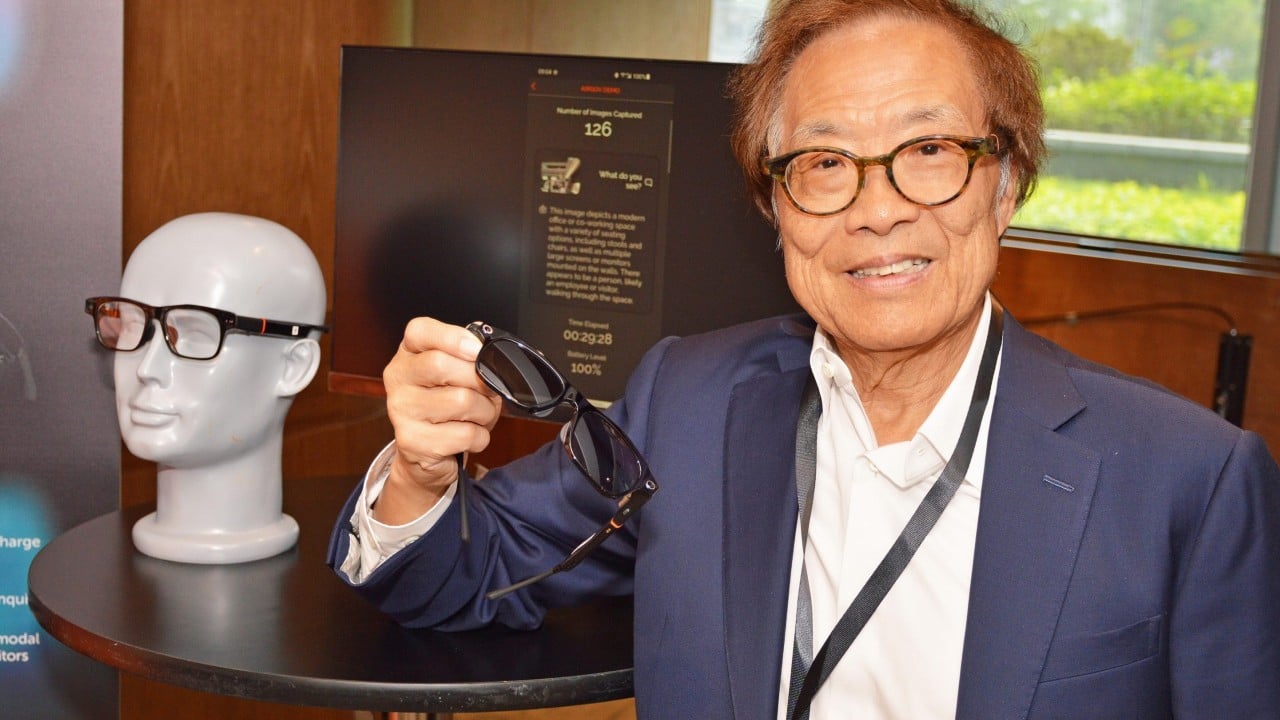An entrepreneur once known for his work on mini displays for the US military is making a late-career push to take on Meta Platforms and Ray-Ban from Hong Kong with smart glasses that incorporate artificial intelligence (AI).
The Solos AirGo V will immediately evoke a sense of deja vu for industry watchers more familiar with the frames that Ray-Ban collaborated on with the owner of Facebook. But John Fan Chin-chiang believes that he has an edge with his Hong Kong-based company, Solos Technology, spun out of a firm he started in Massachusetts in 1985.
“Hong Kong is the centre for eyeglasses – design, manufacturing – and I think people miss it,” Fan said. “My rule No 1: you have to be eyeglasses-first before you worry about ‘smart’.”

Like the most recent iteration of the Ray-Ban Meta Smart Glasses, the AirGo V frames incorporate a camera that allows people to query AI models of their choosing about what they see around them. Fan pitched his glasses as the more fashionable, lighter product, saying they weigh just 30 grams compared with the 49 grams of the Ray-Ban frames.
The Solos app also offers plenty of AI options from different companies to choose from, including the latest GPT-4 and 4o models from OpenAI and different versions of Google’s Gemini and Anthropic’s Claude. Solos has to pay separately for the use of each model, according to a company representative at an unveiling event in Hong Kong on June 28. Users will get a three-month free trial, after which they will be charged for a subscription, the person said.
Solos has not yet set a release date for its latest glasses, but it said it is targeting a December launch.
One thing that is conspicuously missing from both the Solos and Ray-Ban glasses is a micro display in the lens, as companies like Brilliant Labs and TCL’s RayNeo are doing. Fan said that is coming, but Solos is focused on audio for now.
The lack of display is notable given Fan’s background in this area. A few years after his first company Kopin was spun out of MIT, where Fan worked at the Department of Defence-funded Lincoln Laboratory after earning a PhD next door at Harvard University, the company started working on display technology for US military applications.
In 1990, the Defence Advanced Research Projects Agency awarded Kopin US$50 million in funding to develop microdisplays, a 14-year process that resulted in optical modules to be used in weapons and pilot helmets, according to the company’s website.
Kopin was the beneficiary of other US federal funding, as well. From 1987 to 2010, the company received 48 grants from the Small Business Innovation Research and Small Business Technology Transfer programmes, amounting to US$10,134,861, according to US government data. Most of that funding came from the Defence Department, although it also received funding from the Department of Energy, Nasa, and National Science Foundation.
It reached the peak of its government funding in the early 1990s, with Kopin seeing only two small business grants per year by the late aughts. By that point, the company was already trying to look beyond the mobile phone with wearable computers. Its Golden-i headset, manufactured by Motorola, launched in 2009, four years before Google Glass, with voice commands and head tracking.
Still, Kopin was hardly a household name as a maker of specialised hardware for military and enterprise applications. Its octogenarian founder appears to want to change that.

For the AirGo V unveiling event, Fan invited Victor Fung Kwok-king, chairman of Li & Fung Group, an old friend from his days at Harvard.
“I really admire how John has made his career in technology and is now about to make a big breakthrough in the business world,” Fung said at the event. “What I’m seeing today is the type of value-add that Hong Kong needs … Solos is demonstrating what Hong Kong aspires to.”
Fan spun out Solos in 2019 and the OLED maker Lightning Silicon in 2023, basing them in Hong Kong and Santa Clara, California, respectively. He became chairman of the two new companies and stepped down from the Kopin board in May 2023.
“Engineers are all in California and the Boston area,” Fan said. “Solos is a product; it’s not in component research … [Lightning Silicon] is still very much in the R&D stage.”
Beyond what Fan says is Hong Kong’s prowess in design, putting Solos in the city – although it is incorporated in the Cayman Islands – is something of a homecoming for the entrepreneur. Fan was born in Japan-occupied Shanghai in 1943, and his family moved to Hong Kong in 1949, when the Communist Party took over. He moved to the US in 1961 to study electrical engineering at the University of California, Berkeley. Still, his decade in Hong Kong solidified a lifelong connection.
“I grew up in Hong Kong, so you feel like you’re going home,” Fan said of setting up a company in the city.
Support from Hong Kong Science and Technology Parks, a public corporation designed to foster innovation, was another motivating factor.
“Anywhere else, it’s crazy. You pay three times more and you don’t have the support system,” Fan said. “They also have grants, and they kept asking me to scale up.”
The company said the amount it has received in funding and specifics of other support are “confidential information”.

However, this support does not guarantee that a future public listing will happen in the city. The Hong Kong government has been seeking guarantees from local tech champions that they will consider having any future initial public offering on the local exchange, as it recently did for a strategic cooperation with AI unicorn SmartMore.
“Cayman Islands allows us to do anything we want,” Fan said. “It could be Hong Kong, it could be China, it could be the US. Of course, if the conditions are right, the Hong Kong stock market is one of the choices. But I don’t even think that far yet.”
For now, Fan is focused on building a new interface for AI that can succeed in the market. AI start-ups Humane and Rabbit recently launched a pin and handheld AI devices, respectively, that were widely panned in reviews in part because the limitations of LLMs right now do not seem to warrant buying a whole new device. Like smartwatches, though, glasses are more easily incorporated into daily life and can act as a fashion statement.
“Humans are different from robots … People want to look good,” Fan said. “So that’s why I came [to Hong Kong].”


